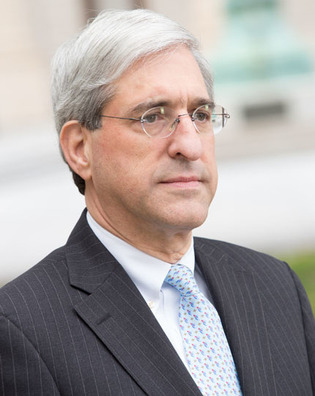 loading
loading
Q&A: Peter Salovey“The envy of the world”Your tax dollars at work, for science and medicine. The Yale Alumni Magazine regularly holds a conversation with Yale president Peter Salovey ’86PhD to provide a forum in which alumni can learn his views. (Interviews are conducted both in person and by e-mail and condensed for print.)  Mark OstowIn this issue, Salovey talks about the importance of federal funding for scientific research. View full imageY: Federal funding is a mainstay of scientific research at Yale and every other US research university. Do you think it’s a priority for the Trump administration? S: Over the years, federal support for scientific research has generally been bipartisan. There can be partisan differences over the budget, but the importance of the work itself has historically been recognized on both sides of the aisle. I would hope that the new administration will be vigorous in its support of the federal funding that propels the search for new knowledge in medicine and science and social science. It is true that we’ve seen political pronouncements against funding certain kinds of research—for example, climate science or stem cell research—but I am optimistic that the new administration will see that the United States has a federally funded scientific research infrastructure that is the envy of the world. I also believe the new administration will accept the historic independence of the peer review process for setting priorities and deciding which proposals to fund. That process has proven itself over the years to be the best way to ensure the quality and impact of funded science.
Y: Could you give some examples of research projects at Yale that were federally funded? S: Take Tom Steitz, our Sterling Professor in the Department of Molecular Biophysics and Biochem-istry. He carried out federally funded research on the ribosome, the structure inside a cell that builds the proteins that allow the body to function and grow. This work was basic biological science—he undertook it simply to investigate cell biology. But over the years, it paved the way for a new company to explore how Steitz’s Nobel Prize–winning discovery of the structure of the ribosome could be used to inform the intelligent design of antibiotics. And that company, in turn, created new jobs in New Haven—both in science and in support. The value of Tom Steitz’s work has spread and multiplied and will continue to do so over time. And it was possible because of federal science funding. There are countless examples. In my own department, discoveries by Tyrone Cannon, the Clark L. Hull Professor of Psychology, related to the genetic bases of schizophrenia were federally funded. Work on understanding cognition in infants and children was federally funded. My own lab was funded by the federal government for nearly three decades. We did research on human emotion, on cancer prevention, on HIV-AIDS prevention and early detection. Without that funding we simply couldn’t have completed our work.
Y: And the grants also help to train the researchers and keep the infrastructure of research institutions intact. S: Yes. Federally funded research supports the educational mission of the university, because so many graduate students and postdoctoral scholars in the sciences are working on it. It supports the next generation of scientists as they receive their training here at Yale. Federal funding also supports a portion of the indirect costs of research—helping to maintain the spaces for the laboratories, providing some of the support for facilities like medical libraries, covering some of the support for high-performance computing. Yale also shares in these costs; we currently cover roughly 40 percent of the total cost of research across the university. If federal budgets for research are cut, the first impact is that less science research is conducted, and the beneficiaries of that work are harmed, all over the world. But a secondary impact is that the university’s ability to conduct research is compromised.
Y: And eventually there would be an impact on America and the world. S: No doubt about it. When I wrote my first grant proposals, the top 20 percent were funded. Now, it’s the top 5 or 6 percent of grant proposals that are funded. So even in the span of my career it has become much more difficult to obtain funding. This can be very discouraging to young scientists who are trying to get their careers off the ground. So they move into different areas of work. Some leave the scientific enterprise altogether. And that loss of intellectual capital comes at a huge cost to our society. If funding is restricted, we could lose the next generation of scientists. We could lose them to other countries, or we could lose them entirely. And society would feel the loss, in America and all over the world. The ability to conduct research across multiple fields is fundamental to Yale’s ability to accomplish its mission of the production of new knowledge. It is fundamental to the well being of our country, and ultimately of humankind.
The comment period has expired.
|
|